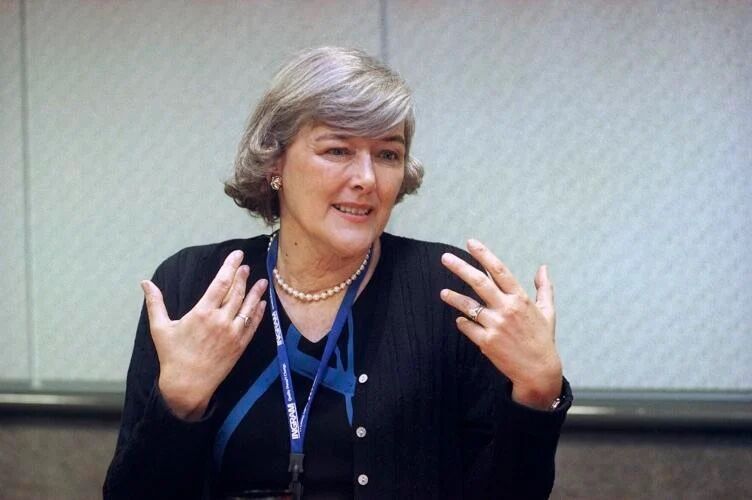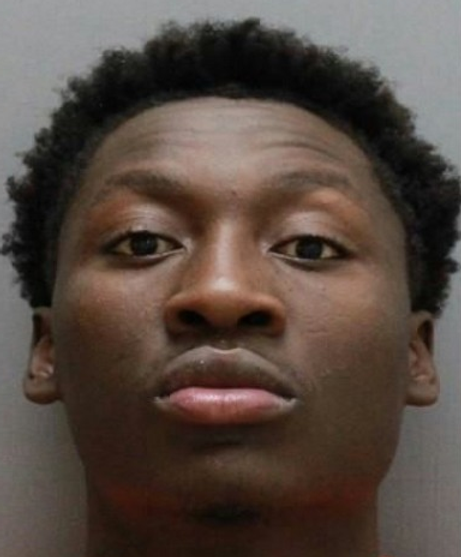3 Colorado senators are expected to resign, prompting calls for vacancy reform
Two Democratic state senators re-elected on Nov. 5 are expected to resign on Jan. 9, prompting calls to reform the vacancy process for selecting replacements.
Sen. Chris Hansen, D-Denver, is expected to resign on Jan. 9. Hansen won re-election with better than 80% of the vote. His only opponent for his Senate District 31 seat was a Libertarian. Hansen has been hired as the CEO of Durango-based La Plata Electric, a co-op that will pay him at least $500,000 annually.
Sen. Janet Buckner, D-Aurora, announced Thursday she will step down on Jan. 9. Buckner ran unopposed in the Nov. 5 election. She’s retiring to focus on family and travel and mentor young community leaders.
A third member of the state Senate, Sen. Kevin Van Winkle, R-Highlands Ranch, was elected to the Douglas County Board of County Commissioners on Nov. 5 but has not yet announced when he will step down.
Vacancies in the state legislature are a growing problem. In the 2023-24 session, 28 lawmakers out of 100 gained their seats through the vacancy process at some point in their legislative history. That included Buckner, Hansen, and Van Winkle.
The number of people on a vacancy committee that elected a new House or Senate member ranged from a low of four to a high of 95, with an average of about 40, according to a Colorado Politics analysis. House members represent about 89,000 constituents; Senate members represent about 165,000.
As a result, the system lets a handful of party insiders choose who represents hundreds of thousands of Coloradans. Democrats and Republicans alike have criticized the vacancy process, although some also argued that, while it’s not ideal, it’s practical.
Buckner was selected to replace her late husband, Rep. John Buckner, in 2015. Hansen was chosen for the Senate District 31 seat in 2020 after Sen. Lois Court stepped down due to illness.
Van Winkle was appointed to his Senate seat in June 2022 to finish out the term of Sen. Chris Holbert of Douglas County. Van Winkle ran for and won the seat in the 2022 election. He did not return a call for comment.
The announcements are raising eyebrows and generating concern over three more vacancies, which are unlikely to be filled until after the 2025 session starts on Jan. 8.
In the 2024 session, Rep. Bob Marshall, D-Highlands Ranch, hoped to address the problem with a concurrent resolution that would require voter approval to begin changing the vacancy process.
Under House Concurrent Resolution 24-1004, any state representative or senator appointed by a vacancy committee would be prohibited from serving the term immediately following the term for which they were appointed, meaning they’d be barred from running for that seat in the following election.
While the resolution won a bipartisan 7-4 vote from the House State, Civic, Military, and Veterans Affairs Committee, it died on the House calendar. Marshall said Thursday he’ll run it again in the 2025 session.
Marshall reacted to the latest announcement via X (formerly Twitter).

Tweet by Rep. Bob Marshall, D-Highlands Ranch, on the rash of vacancies in the state Senate due to resignations.
Marshall is no longer alone in wanting to reform the vacancy process.
Thursday, Democratic State Party Chair Shad Murib voiced his support for reform.
A statement from the state party noted that both Democratic districts—Senate District 31 (Hansen) and Senate District 29 (Buckner)—are single-county districts, meaning the state party has a say in advising both the county parties and district leadership on how to administer their vacancy committees.
The statement added that the Denver Democratic Party, which will handle the SD31 vacancy, will prioritize “transparency, accessibility, and fairness in this process and plans to host opportunities for the public to get to know the candidates, livestream the meeting, and promote candidate and vacancy information on its website.”
The SD 29 vacancy will be handled by the Arapahoe County Democratic Party, which, according to the statement, has “a proven track record of running excellent and accessible vacancy committees.”
He thanked Buckner and Hansen for their service and said the party places a “high premium on transparency, accountability and public access to the vacancy process.”
But the time for reform has come, Murib indicated.
“The growing number of senators and representatives of both parties serving in office as a result of vacancy committee selections and not traditional elections should concern every Coloradan, and it certainly concerns me,” he said.
“Regardless of the high standards we place on ourselves to run as great a vacancy committee process as the law allows, the fact remains that vacancy committees are small and don’t provide for the same type of public input and scrutiny as a traditional election. In some cases, vacancies have preempted vigorous primary campaigns that allow Democrats, Republicans, and unaffiliated voters to choose Party nominees without anyone having the advantage of incumbency.”
State law and the state’s “unique and prohibitive budget restrictions provide real logistical concerns regarding reform, including cost and the potential for districts to go unrepresented for months. Because of this, we have been hesitant to entertain conversations about transitioning to special elections or reforming this process.”
The time has come, he said, to make the process better.
“Speculation that lawmakers strategize their resignations to hand-pick their replacements, or climb the ladder of elected office, is also a growing sentiment among the public. While we have worked hard to prevent this from ever occurring, it is incumbent on us to do everything we can to bolster trust in our democracy by acknowledging and addressing this issue proactively.”
Murib pledged to communicate with the governor’s office, the Secretary of State, and House & Senate leadership in the coming days to begin discussing reforms to the vacancy committee process.
Marshall told Colorado Politics during the spring that “if you have a democratic form of government, having 30% chosen by a cloistered group of individuals runs counter to that entire idea or ideal.”
Marshall indicated that even allowing the governor to make those appointments would be better than the status quo since the governor is elected and held accountable by all the voters. He has also advocated for a special election process, although acknowledging it’s expensive and could lead to even further delays in representation under the Gold Dome.
In February, Marshall told Colorado Politics that he had been told a constituent wanted to be in the legislature but didn’t want to run for election.
“I want a vacancy appointment!” the constituent said. “People are starting to think it’s the norm,” Marshall said. “It’s not.”
Initiative 197, pushed in 2024 by former DaVita CEO Kent Thiry, would have required a special election for vacancy appointments unless there isn’t enough time before a general election to do so. In that case, the governor would make the appointment for the vacancy. Thiry, however, abandoned that effort to focus on Proposition 131, his ranked-choice voting/open primary election measure. Voters rejected it by about six percentage points.
The 2025 General Assembly will have at least 19 members who gained their seats through the vacancy process, with 11 in the House and eight in the Senate, including the replacements for Buckner, Hansen and Van Winkle. However, depending on whether current House members win those vacancies, that could add up to another three to the list of House members selected through the vacancy process.











